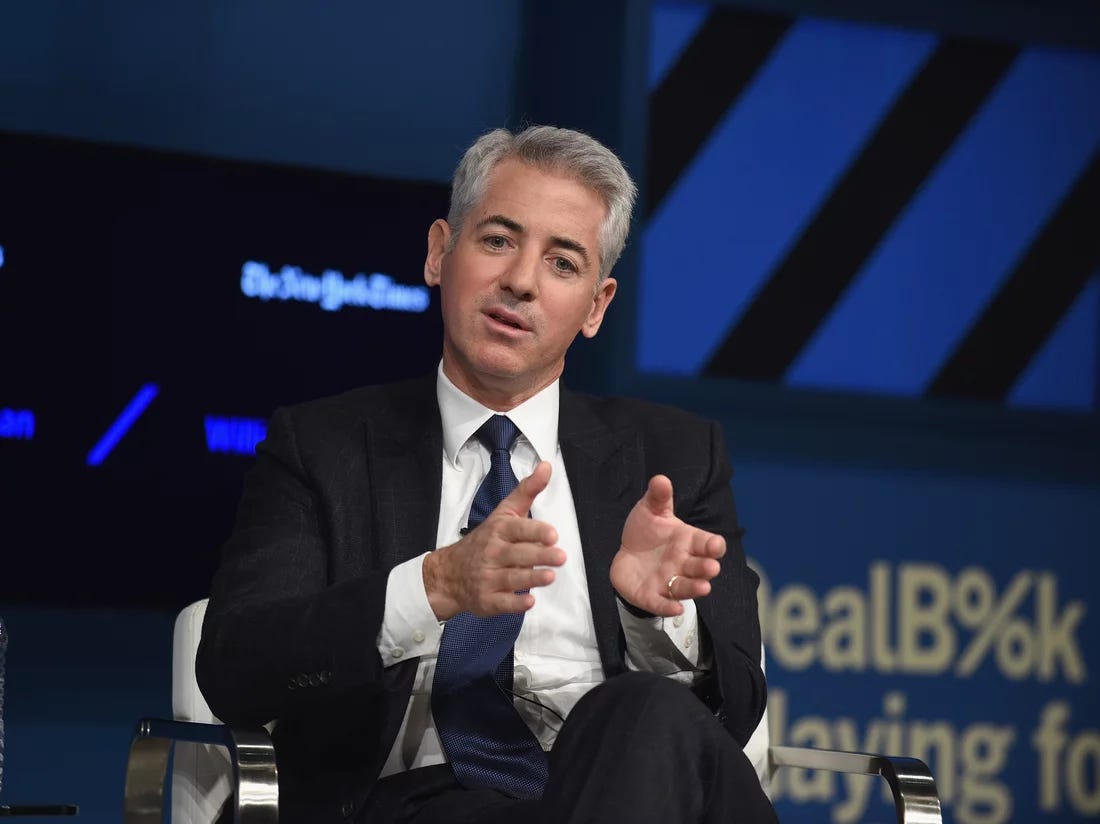How Bill Ackman Turned Crises Into Billions—And The Lessons For All of Us
The secret but simple investing strategies Ackman used to turn struggles into success—and what we can learn from them
Let’s talk about Bill Ackman. Love him or hate him, the man knows how to find winners when the market is panicking. His moves aren’t just about guts; they’re about timing, homework, patience, and knowing when to pull the trigger. Let’s dig into three cases where Ackman turned chaos into cash: Universal Music Group, Chipotle, and Alphabet.
Case Study 1: Universal Music Group (UMG)
Music: The Forever Asset
Music is universal. It’s been around for thousands of years and will be around thousands more. That’s Ackman’s core thesis for Universal Music Group (UMG). UMG isn’t just about artists—it’s about the assets. We’re talking The Beatles, Taylor Swift, and U2. It owns a third of the global music market, which is practically a monopoly in an industry where nostalgia and new hits sell equally well.
Why Ackman Bought In
In 2021, Ackman acquired a 10% stake in UMG through Pershing Square Holdings, valuing the company at €35 billion. What caught his eye? The seismic shift in the music industry. Streaming platforms like Spotify and Apple Music turned unpredictable physical sales into consistent, recurring revenues.
Ackman saw this shift as an opportunity to lock in on a business that’s as timeless as it is adaptable. Predictable cash flows? That’s music to Ackman’s ears.
Ackman’s still holding on tight to UMG. Why wouldn’t he? Streaming revenues keep climbing. The Beatles aren’t going out of style, and neither is music.
The Takeaway
Bet on timeless industries: Music isn’t a trend. It’s forever.
Find companies that adapt: UMG survived Napster, piracy, and the digital revolution. Resilience is everything.
Go for market leaders: A company that controls a third of its industry is a safe bet.
Case Study 2: Chipotle Mexican Grill
When Burritos Went Bad
In 2015, Chipotle had a PR nightmare. E. coli outbreaks shut down restaurants and sent the stock plummeting 50%. Customers left, the media piled on, and Wall Street panicked. Enter Ackman.
In 2016, Ackman jumped in, acquiring a 9.9% stake in Chipotle during its darkest hour. Ackman doesn’t invest in dumpster fires—he invests in businesses with strong bones. Chipotle’s food safety issues were real, but the company’s fundamentals were rock solid. Fresh, sustainable ingredients and a cult-like following? That doesn’t just disappear because of one bad year.
What Ackman Did
First, he put pressure on the board to bring in Brian Niccol, the ex-Taco Bell CEO. Niccol wasn’t just a manager; he was a brand builder. Under his leadership:
Food safety got a complete overhaul.
Digital ordering exploded.
Chipotle launched loyalty programs that worked like a charm.
The result? A full turnaround. Chipotle isn’t just back; it’s stronger than ever.
Chipotle’s stock went from "dying" to "thriving." It’s now a market darling, breaking records left and right. Ackman cashed in on one of the most impressive corporate comebacks in recent history.
The Takeaway
Crises create discounts: When everyone else runs, look closely. Sometimes, the fear is overblown.
Fixable problems ≠ doomed company: Chipotle’s issue was operational, not existential.
Leadership matters: A great CEO can turn a shipwreck into a yacht.
Case Study 3: Alphabet (Google)
The AI Scare
Alphabet is a giant—Google, YouTube, Android. But even giants stumble. When OpenAI dropped ChatGPT, the world went nuts for AI. Suddenly, people questioned Google’s dominance in search and advertising. Alphabet responded with Bard, its AI product, but the demo flopped, and the stock tanked.
Ackman saw this as a gift.
Why Ackman Bought In
In early 2023, Ackman disclosed a significant position in Alphabet, citing it as undervalued at a low price-to-earnings multiple (15x earnings). Despite AI concerns, Ackman believed Alphabet’s vast resources, engineering talent, and data provided a competitive edge. He called it a bet on long-term dominance rather than a reaction to short-term fears.
Since then, Alphabet has bounced back. Its AI products are improving, and Google’s core businesses—search, YouTube, and cloud computing—are still printing money. Ackman’s play here wasn’t just smart; it was classic value investing.
The Takeaway
Ignore the noise: The market often overreacts to flashy headlines.
Value unique assets: Alphabet’s access to global search data, along with its financial and engineering resources, provides a moat few can touch.
Price matters: Even great companies can become bargains if the market panics.
What Ackman Teaches Us About Investing
Ackman’s success isn’t magic. It’s strategy. Here’s what you can steal from his playbook:
Do your homework: Ackman doesn’t guess. He digs deep into financial filings, management teams, and industry trends.
Think long-term: Universal Music Group wasn’t a quick flip. Chipotle’s recovery didn’t happen overnight. Alphabet is a bet on the future of AI. Real investing takes patience.
Find great leaders: A CEO like Brian Niccol can make or break a company. Bet on people who know how to win.
Buy fear, sell greed: When the market panics (Chipotle, Alphabet), Ackman steps in. When it’s euphoric, he cashes out.
Stick to the fundamentals: Predictable cash flows, durable advantages, and strong market positions—those are the golden trifecta.
Final Thought: Finding Gold in Chaos
Ackman’s moves aren’t about luck. They’re about seeing opportunity where others see doom. UMG turned timeless art into predictable revenue. Chipotle bounced back from disaster to become a star again. Alphabet shrugged off the AI hype to remain a tech titan.
The lesson? Don’t get scared when the headlines scream. Do your homework, stay patient, and trust the fundamentals. That’s how Ackman wins. And that’s how you can win too.
What’s your favorite part of Ackman’s strategy? Drop your thoughts below—I’d love to hear them.


